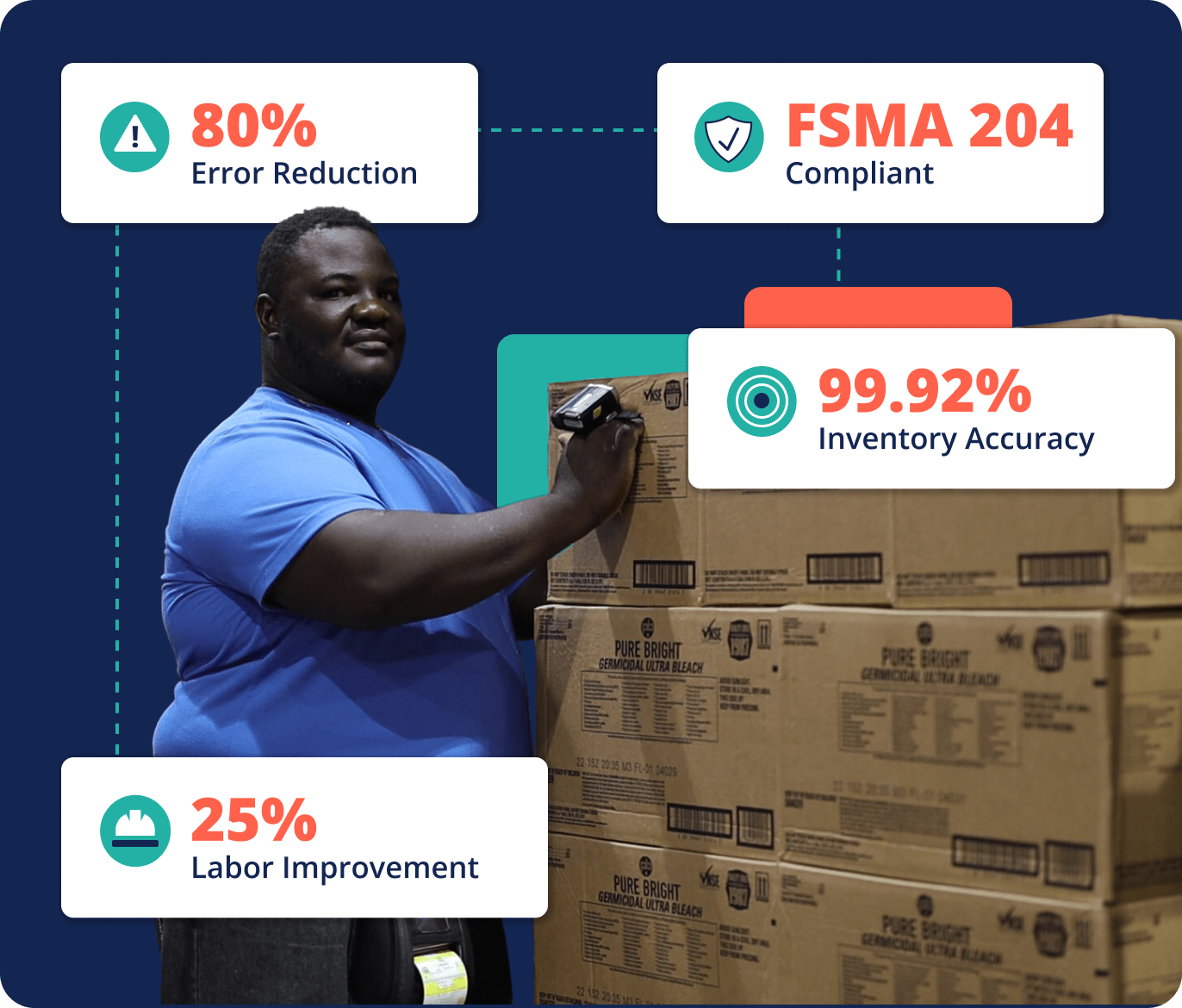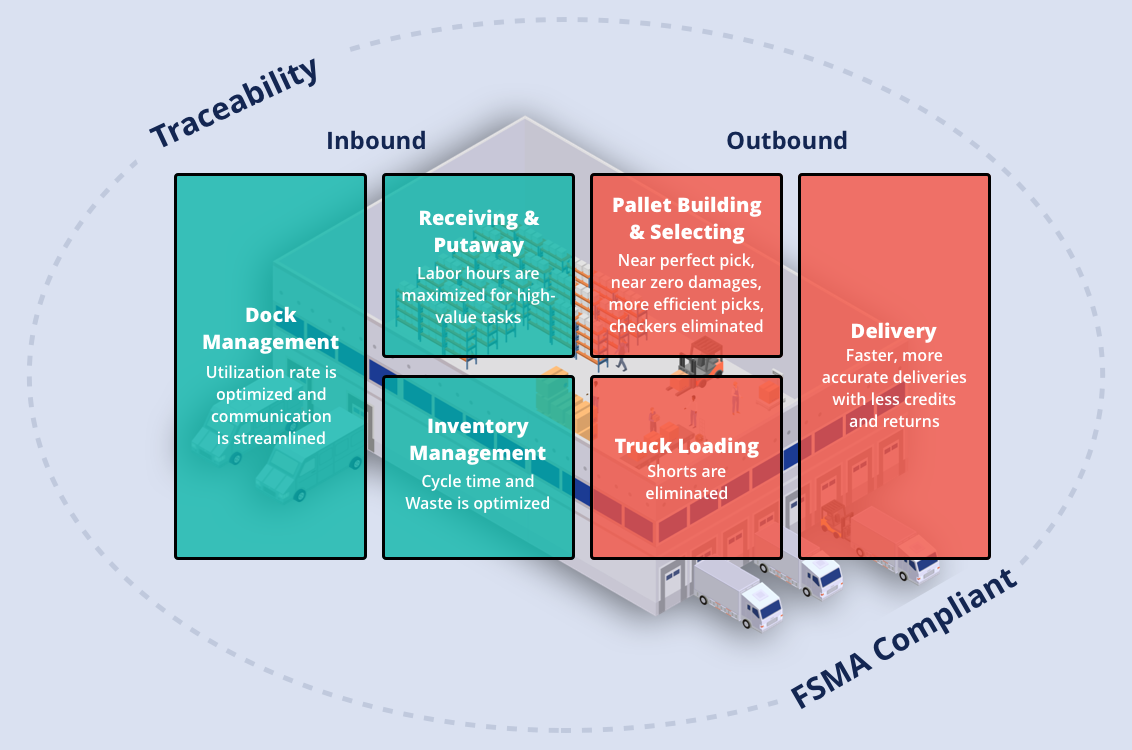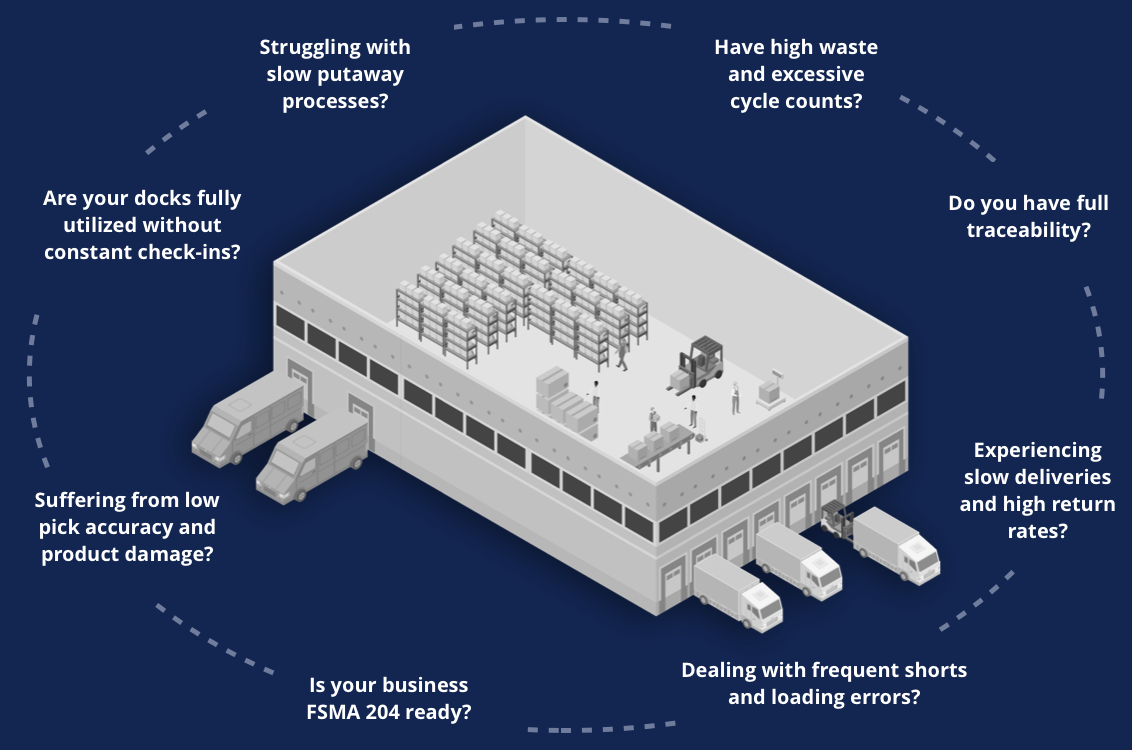BFC is the most trusted and comprehensive food-focused WMS on the market. See why our customers outperform industry standards.
Inventory accuracy our best-in-class customers see.
Error rate our best-in-class customers see







Spanning inbound, outbound, delivery, and ordering, our products help warehouses reduce errors, improve labor productivity, and stay compliant. More than just a WMS, we’re a solution that helps food distributors control their warehouse.
Low Risk, Phased Implementations: We meet you where you are. You can start with either inbound or outbound solutions, or implement both in parallel. It's your choice.
24/7/365 Support: We're available when you need us, because we know your business isn't just 9 to 5. For urgent issues, we offer 24/7 support to keep your operations smooth.
End-To-End Traceability: Our system spans from order to delivery, offering unmatched traceability throughout your warehouse. Get FSMA 204 ready with us.
We know what good looks like. Our sole focus is on making your warehouse work smarter, not harder, ensuring efficiency, traceability, and profitability at every step. Why do food distributors trust us?


Read what it's like to use BFC Software.







"Over the years, our trust in BFC has paid off. They've not just optimized our operations and profitability; they've been a reliable partner that's allowed us to grow and expand our business. That's why we've never needed to look elsewhere."
President @ City Line

“BFC Software saved us so much time and resources while giving us way more insights into the operations and efficiency of our business than we ever had manually."
President @ Cotati Food Service

"BFC reduced the number of selectors from 30 to 17, eliminated 2 checkers and improved mispicks from 1-1,000 to 1-12,000."
Operations Manager @ Jordano's FoodService